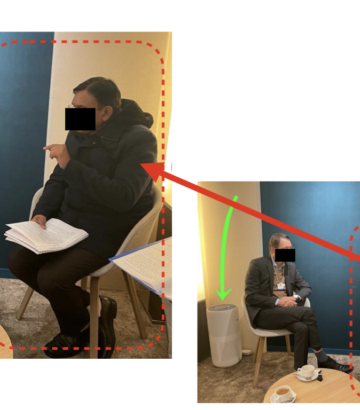Declaration Document: Clean Air Technology for a Sustainable Future
We, the participants and stakeholders of the WHN Clean Air Expo, gathered on this day Oct 24,2023 virtually across the world, recognize the urgent need for collective action to address the critical issue of indoor air quality and its detrimental effects on pathogen transmission, particularly COVID-19, and more generally human health. We recognize the importance of promoting and adopting clean air technology as a crucial step toward achieving a healthy and sustainable future.
Science and Technology:
1. We affirm the scientific consensus that inadequate air quality leads to severe risks to human health, including the airborne transmission of COVID-19 and other respiratory diseases, as well as health impacts of air pollution. We recognize the need for rigorous scientific research and technological advancements in mitigating airborne transmission, air pollution and identifying its sources, impact, and potential solutions.
Politics and Legislation:
2. We support the adoption of stringent national legislation and policies aimed at improving indoor air quality to levels to prevent pathogen transmission, including COVID-19, protect public health and promote sustainable development. We commend the efforts of countries like Belgium in setting national standards and guidelines to safeguard their population’s well-being and encourage other nations to follow suit.
3. We highlight the necessity of international collaboration among governments, policymakers, and regulatory bodies to establish globally applicable indoor air quality standards. Acknowledging that the existing regulations set by the United States Environmental Protection Agency (EPA) fall short, we call for their continuous evaluation and improvement to ensure more effective protection of air quality within the country.
Standards and Certification:
4. We emphasize the importance of developing and implementing comprehensive standards for clean air technology and related industries. Adoption of rigorous certification processes and regular monitoring can help ensure the efficacy and safety of such technologies, promoting their widespread use and public trust. The National Personal Protective Laboratory of NIOSH at the CDC exemplifies this effort.
5. We encourage the establishment of international benchmarks and harmonized standards to facilitate global trade and technological exchange while ensuring consistent and reliable performance across clean air technologies.
Advocacy and Awareness:
6. We recognize the significance of public awareness and education in driving the adoption of clean air technology. We urge governments, non-governmental organizations, and industry stakeholders to prioritize public outreach campaigns, emphasizing the importance of clean air and the positive impact of adopting clean air technologies on our health and the environment.
7. We note the harmful impact of widespread misinformation regarding how COVID spreads and how to reduce its spread. It is crucial that governments and public health agencies take immediate steps to review their communications to ensure key messages about airborne transmission are strongly emphasized, along with recognition of the important role of proven measures such as respirators, ventilation and filtration to reduce transmission. We urge a zero tolerance approach to incorrect or misleading information such as promoting hand hygiene ahead of airborne mitigations, or conflating COVID with less harmful respiratory viruses.
Investment in R&D and implementation
8. We advocate for increased investment in research, development and implementation of innovative clean air solutions, including but not limited to, monitoring systems, ventilation systems, air cleaning systems including filtration and UV technologies, effective Personal Protective Equipment, and other innovations.
9. We support collaborations among academic and research institutions, policymakers, industries, and civil society organizations to promote and advocate for clean air technologies as a core component of improvements in public health locally, nationally and globally.
Adoption and Implementation:
10. We call upon governments, businesses, and individuals to actively adopt and implement clean air technologies and practices, including the integration of monitoring, ventilation, air cleaning, and PPE, including respirator masks.
11. We urge the international community to support and facilitate access to funding, incentives, and resources to promote the development, deployment, and scaling up of clean air technologies, across the world.
We hereby commit ourselves to the pursuit of cleaner air for the benefit of all humanity and the preservation of our planet. We acknowledge that the success of our collective efforts in driving the adoption of clean air technologies will determine the quality of life in the near term for ourselves, our families and for future generations.










